



I'm sitting with Ed at one of the hundreds of demo pods at Activision's opulent Call of Duty XP event in September. He's a squat 18-year-old kid, and he's got a learning disability which has permanently affected his growth. I notice he walks with a limp, but I never ask him for specifics on this.
Ed and I are playing Modern Warfare 3's Survival mode on the rather excellent Dome map, and he's absolutely fantastic. He keeps me alive, he tells me what (and when) to buy, and he moves my sentry turrets into the right position for maximum effect. I have just turned 25, have been playing first person shooters most of my life, and playing with Ed makes me feel like an idiot.
Survival in Modern Warfare 3 pits two players against a never-ending stream of baddies, giving them a brief respite between waves to stock up on ammo and swap money (awarded from kills) for powerful support items.
In one of the moments of downtime, just after taking out two enemy juggernauts almost single-handedly, Ed asks me where I'm from - he's spotted my accent. I say London, because I don't want to overcomplicate the situation by explaining that Croydon is in Surrey. He says I sound posh.
I find out a few things between rounds, learning about Ed's life between taking out hordes of paramilitary troops and attack dogs strapped with C4.
"I play a lot of Call of Duty," he says triumphantly. He's been playing since Call of Duty 4, and he knew he had to attend Call of Duty XP from the moment it was announced - the trip wasn't too costly as he already lives in Los Angeles, like many of the attendees.
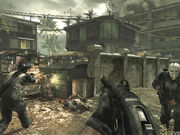
Ed is initially shy and reserved, but the further we get into the game the more relaxed and friendly he becomes. This is particularly tough for me, because the game is getting difficult enough that I need to keep my focus and stay sharp.
Looking past the fact he must have been 13 years old when Call of Duty 4 launched, I ask Ed why he started playing. "Some of the kids at school were pretty mean," he says. I immediately crawl into my shell.
We're on Wave 24 when I'm told this. Consumed by feelings of sadness and awkwardness, I bury my head in the proverbial sand and shoot some people on the screen. I have no idea what to say at this point.
Eventually I pluck up enough courage to ask him how things are now. He says they're better and that the game has helped him - and you'll excuse me for paraphrasing the next bit, as I was too busy with a dangerous wave of attack helicopters to think about making direct quotes - both as a crutch when times were bad, and as a way of making friends when they got better.
I'm sorry, but that is an amazing thing for a video game to do. We might wax lyrical about Heavy Rain's attempts to make us shed tears, but I think it's equally as amazing to see a game that helps to stop somebody crying.
I don't know what Ed is doing now, or what his plans for the future are. If he's 18 I assume his time at school is coming to an end and he'll be entering adult life. But over a 40-minute game of Modern Warfare 3 I got to learn about his past, and the impact it's had on his life. I'm glad I had the chance.
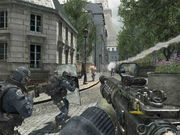
This is a funny industry, one where gamers are more than happy to humanise publishers and corporations but seem to loathe thinking of their fellow hobbyists as actual people; the levels of anonymity afforded to us by the internet almost certainly doesn't help. We as a community are fat and ripe for the plucking by the advertisers and the shills, so perpetually dissatisfied with what we have, so wrapped up in cycles of hype and marketing that we forget to think of games as anything more than sales figures and vile arguments over scores.
The games press isn't much better, with very little of its (already rare) intelligent discourse used to discuss things like multiplayer and social gaming. We, as an industry, reserve our most intelligent thought for narrative-led games, and we judge publishers for their stories and isolated adventures. We do this partially because this fits into the structure of our profession, but also because those are the kind of games we grew up with. Which is why I want us all to meet Ed. Hi Ed!
I'm not saying Call of Duty is the best game ever, or even that you have to like it. There are plenty of reasons why you might not want to play it, and that's fine. What would be nice, though, is before you write another bile-filled comment about how much you hate what Activision has done, you spend a couple of seconds thinking about Ed and the positive effect games of its ilk have had on his life.
As for our game? Ed and I eventually die on Wave 29. Not the best score, but a very respectable one.
"You're alright," he says. So are you, Ed.
Names in this article have been changed.


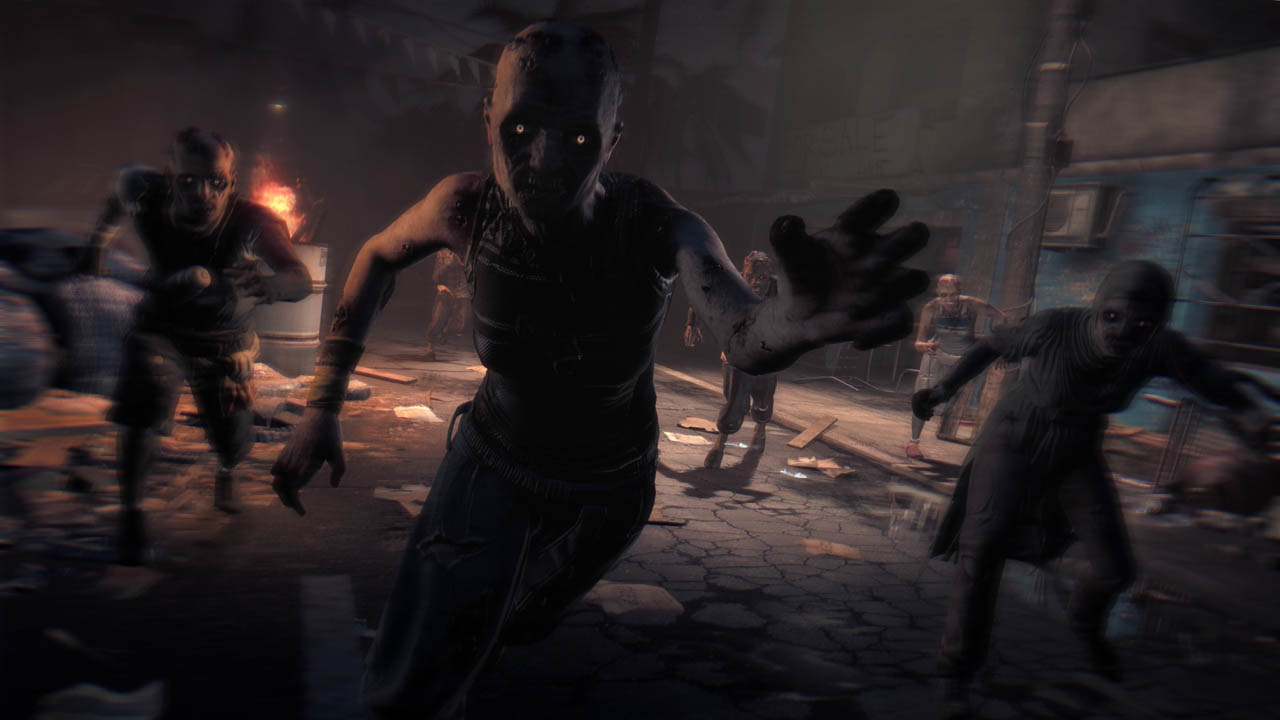

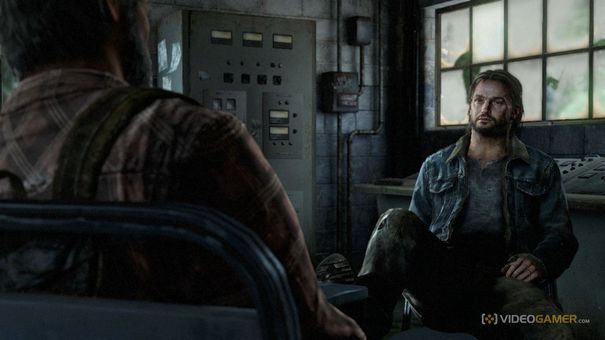 Is the success of The Last of Us harming storytelling in games?
Is the success of The Last of Us harming storytelling in games? Atom Zombie Smasher Strategy Guide: how to beat back the Nuevo Aires Zombie Infestation with your mercenaries
Atom Zombie Smasher Strategy Guide: how to beat back the Nuevo Aires Zombie Infestation with your mercenaries How to Create Minecraft Maps with WorldPainter
How to Create Minecraft Maps with WorldPainter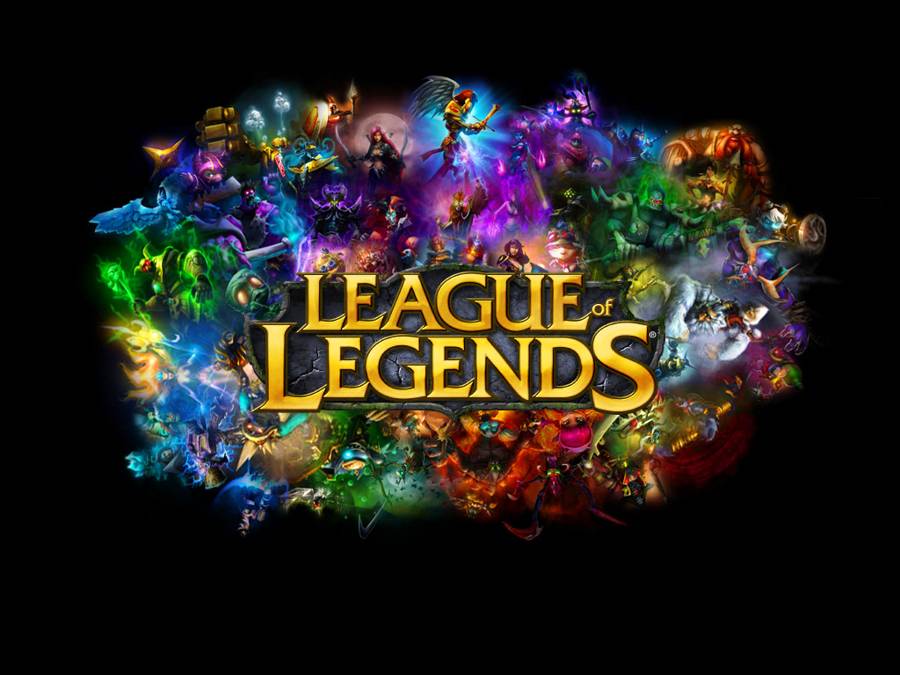 League Of Legends Hecarim Jungle Guide
League Of Legends Hecarim Jungle Guide Elder Scrolls V: How To Become a Vampire Lord - GamersHeroes
Elder Scrolls V: How To Become a Vampire Lord - GamersHeroes